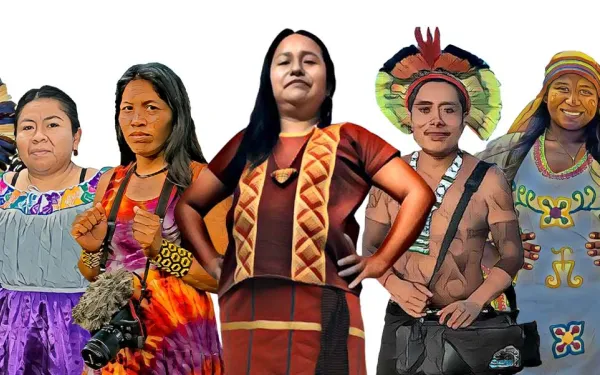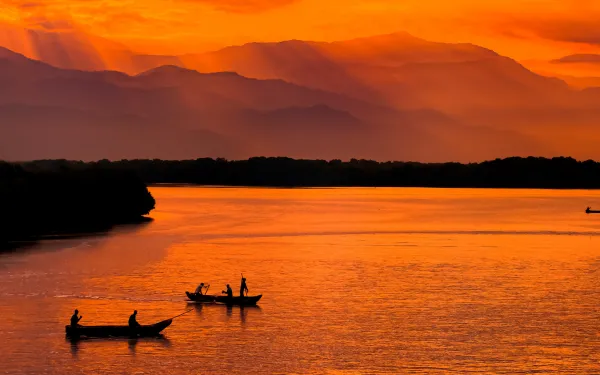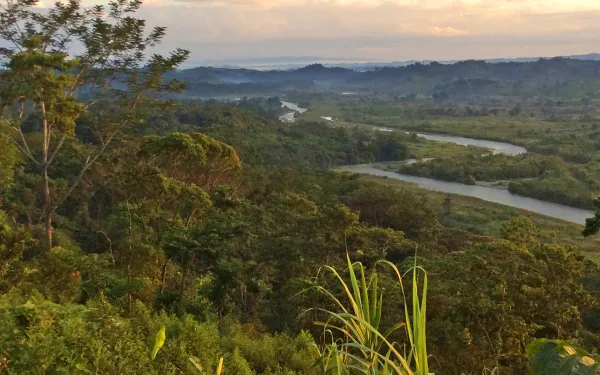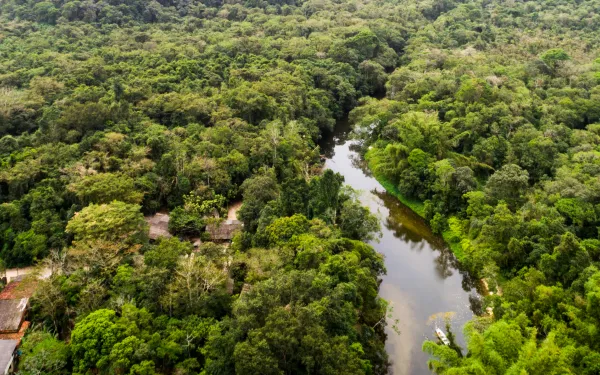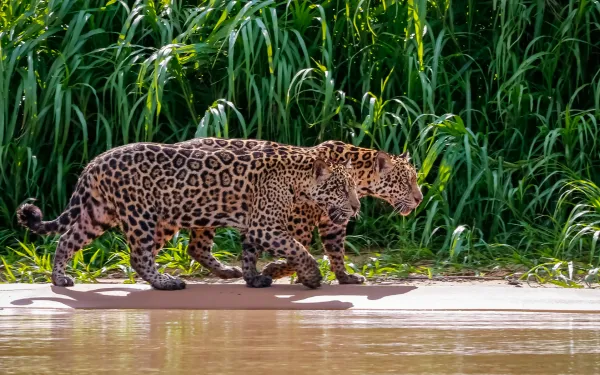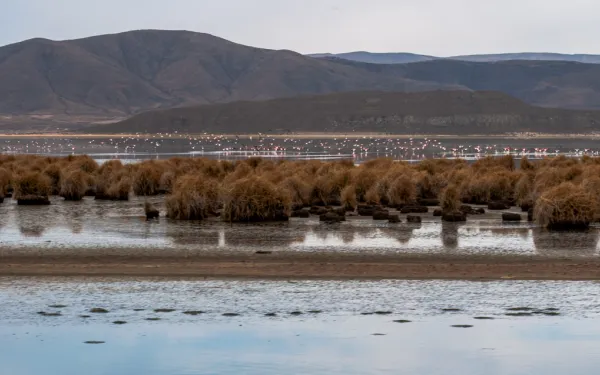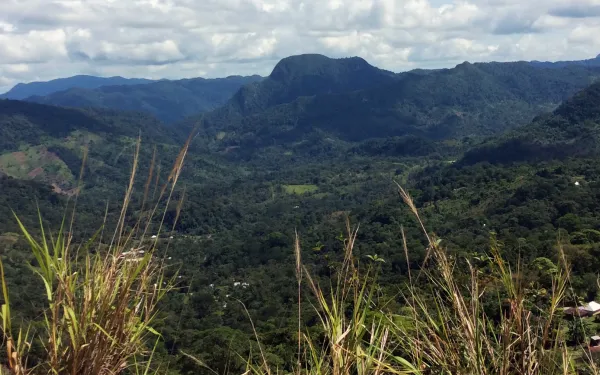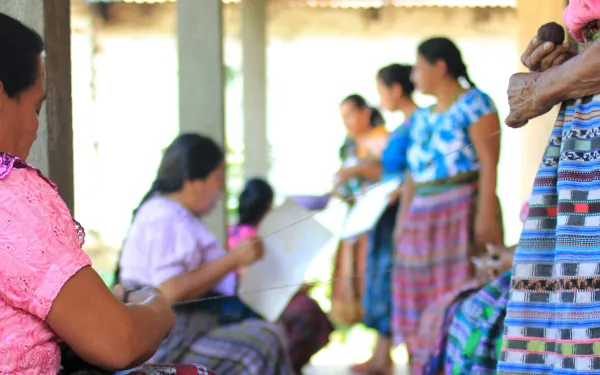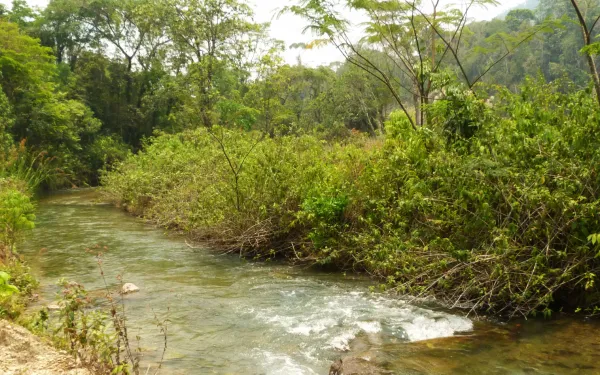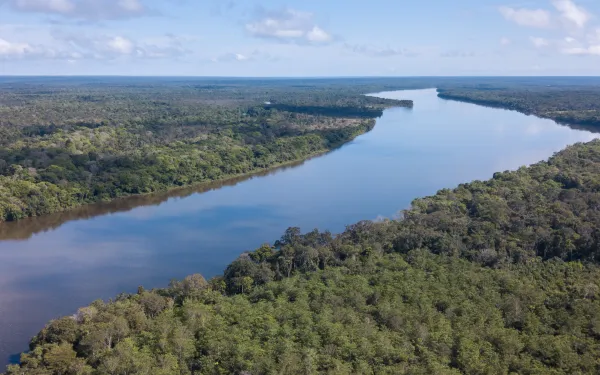
Court ruling may approve licensing for Belo Sun's mining project in the Amazon
Environmental licensing for the largest open-pit gold mine project in Brazil has been challenged by eight lawsuits exposing flaws in environmental impact studies. A possible decision in favor of Belo Sun may set a precedent that illegally restricts consultation of traditional peoples and sanctions human rights violations. Altamira (Pará), April 22, 2022 — On Monday, April 25, the Regional Federal Court of the 1st Region (TRF1) will rule on two decisive cases that could pave the way for the beginning of the project by Canadian mining company Belo Sun in Pará, in the Brazilian Amazon. The company plans to build the largest open-pit gold mine in Brazil, at Volta Grande do Xingu, one of the most biodiverse sites in the world and a region that has already suffered the impacts of the Belo Monte dam and hydroelectric plant. In 2017, the Regional Federal Court of the 1st Region (TRF1) revoked a second license granted by the state of Pará for the installation of the project, prompting the mining company to undergo a process of prior consultation with affected Indigenous peoples, in accordance with Convention 169 of the International Labor Organization (ILO). The Court also required the company to prepare an Indigenous Component Study (ECI) within the parameters required by Funai (Brazilian National Indigenous Foundation), on the impacts of the project on Indigenous peoples. At the hearing on April25, 2022, the court will revisit the case. Belo Sun claims it has complied with the requirements, but the Federal Prosecution Office (MPF) is contesting this assertion. The Prosecution Office says that Belo Sun performed no actual consultation with affected populations, and that the ECI study is flawed — researchers have considered the project to be environmentally unfeasible, with a high likelihood of dam failure. The Prosecution Office's claims are based on a report published in February by researchers from the Observatory of Community Protocols of Consultation and Prior, Free and Informed Consent, at the request of the Prosecution Office itself. “If the TRF-1 upholds Belo Sun's request, we will be facing a dangerous precedent, which illegally restricts the content of the consultation provided for in Articles 6, 15, and 16 of Convention 169 of the International Labor Organization (ILO), and sanctions the violation of the human rights of Indigenous peoples and traditional communities in Volta Grande do Xingu. Such decision would legitimize the lawless actions undertaken by Belo Sun and would open the doors to the exploration of the newest gold frontier in the Amazon, which, if made possible, will surely drive the ecocide and systematic destruction of the already-fragile region of Volta Grande,” declares Ana Carolina Alfinito, legal advisor at Amazon Watch, an organization that is part of the Volta Grande do Xingu Alliance. Belo Sun’s Volta Grande Project would affect multiple Indigenous peoples, including the Jurunas of the Paquiçamba Indigenous Land, the Araras of the Arara da Volta Grande Indigenous Territory, the isolated peoples of the Ituna-Itatá Indigenous Territory, and “desaldeados”—Indigenous groups who traditionally occupy territories that haven’t yet been formally demarcated by the Brazilian government. These groups inhabit territories very close to the site the project would occupy. Such is the case of the population that lives on Ilha da Fazenda, Ressaca, and Galo, in addition to the communities of São Francisco (Juruna), Iawa (Kuruaya), Jericoá II (Xipaia), Kanipá (Xipaia), and Kaniamã (Xipaia). The São Francisco community, for example, is located only 600 meters from the project area, so it would suffer serious and direct impacts, which makes its exclusion from the impact assessment and consultation process even more serious. According to the document from the Prosecution Office, Belo Sun only collected testimonies from the affected communities, leaving no room for Indigenous people to express their views and influence the project, as should occur in an effective consultation process. The report also suggests that the mining company is attempting to classify meetings with the desaldeado communities as consultations—although the company’s initial and expressed goal was merely to collect information. There are no records that Indigenous people who attended these meetings were informed that they were attending a prior consultation process for deliberation on the gold mine. A 2012 ruling by the Inter-American Court of Human Rights upholds that consultations must take place “at all stages of planning and from the earliest phases.” The same ruling by the Court determined that prior consultation is a responsibility of the government, which cannot be delegated to private companies, “much less to those interested in extracting the resources. There are records of meetings in which only representatives of Belo Sun and some of the Indigenous communities participated, without the presence of governmental agencies,” the Observatory's report points out. In a statement to Repórter Brasil, Lorena Kuruaya says that the Iawá community, made up of members of the Xipaia and Kuruaia peoples and one of those affected by Belo Sun’s project, sent several consultation requests to Funai but got no response. “We need to know about the project, about explosions and the use of cyanide, because we fear what happened in Brumadinho and Mariana. To date, we have been treated as if we were invisible in the consultation process,” reads a letter from 2020 signed by community members. In another joint communiqué, according to Repórter Brasil, residents of Iawá and the Kanipá, Jericoá I, and Jericoá II communities informed Funai that none of them had been “sought, consulted, let alone informed” about the implications of the project, and requested mediation from the agency so the mining company could present explanations, execution plans, and potential environmental impacts. “A decision in favor of Belo Sun means that the Brazilian government, as in the case of Belo Monte, will once again side with big companies, completely ignoring the socio-environmental impacts that will result from this project,” points out lawyer Marcella Ribeiro, from the Human Rights program of AIDA (Inter-American Association for Environmental Defense). “The polygons under scrutiny go beyond the river area and extend to Indigenous regions. Within a few years we will likely see gold exploration in adjoining areas. And if Bill 191 is approved, these Indigenous lands will become a large mine,” she proclaims. Failures and impacts of Belo Sun’s project According to experts, the Belo Sun mining project in Volta Grande do Xingu has serious structural flaws which were not clearly presented to the impacted communities during the consultation process. Environmental impact studies carried out by the mining company disregard both the potential seismic impacts on the tailings dam that needs to be built and the cumulative impacts it would cause along with the dam of the Belo Monte plant. The dam designed for the mine would be similar in size to the Vale dam that collapsed in Mariana in 2015, causing Brazil's biggest environmental disaster. A report by an expert in geology and mining, Dr. Steven H. Emerman, claims that at least nine million cubic meters of toxic mining waste could reach the Xingu River and travel more than 40 kilometers in two hours, causing irreversible damage. These tailings could contain highly toxic metals, such as cyanide, arsenic, and mercury, which could lead to ecocide of the Xingu River. Furthermore, Belo Sun’s project is only ten kilometers from the main dam on the Xingu River, built for the Belo Monte hydroelectric power plant. The exploration conducted by the mining company expects explosions 24 hours a day to extract gold from the earth, for at least 12 years. There is a risk that the explosions will impact the stability of the Belo Monte dam, as well as that of the Volta Grande project, something that has not been considered until now. Belo Monte itself, in a recent statement, warned of the risks of implementing a minint megaproject in the area. Other studies point to impacts such as changes in the reproductive cycle of fauna, deforestation and/or burning, pollution of water resources, and soil contamination. Volta Grande do Xingu Alliance This is a communiqué by the Volta Grande do Xingu Alliance, which includes organizations and social movements from Brazil and the world. The Alliance supports the defense of life and dignity in the Volta Grande do Xingu region and its permanent protection against infrastructure projects such as the Belo Monte hydroelectric plant and Belo Sun’s mine. The Alliance comprises: AIDA, Amazon Watch, Earthworks, International Rivers, Instituto Socioambiental – ISA, Mining Watch, Movimento Xingu Vivo para Sempre, and Rede Xingu+.
Read more
